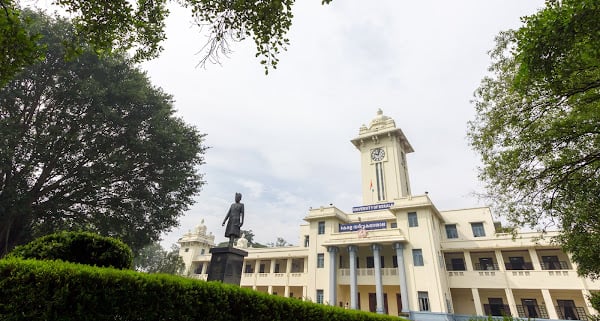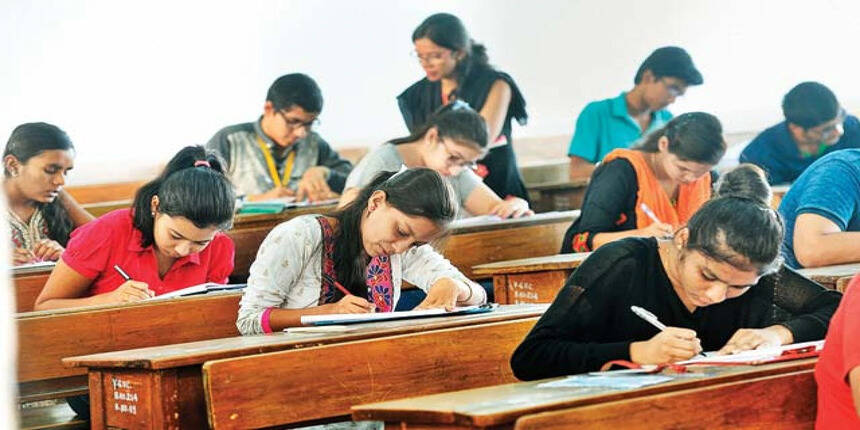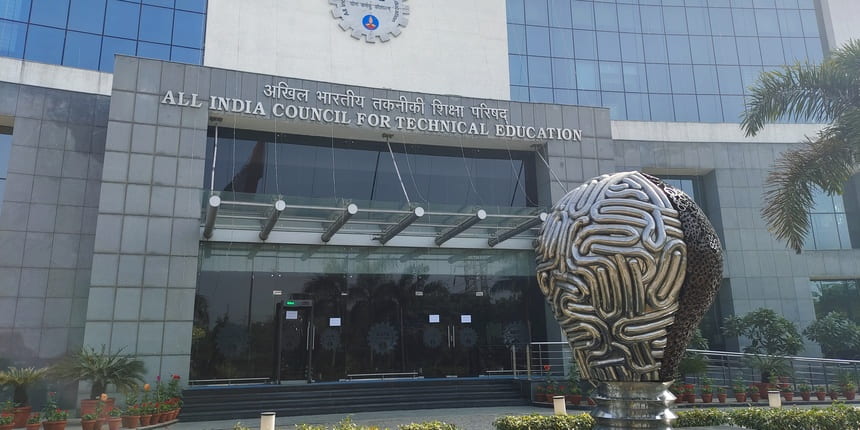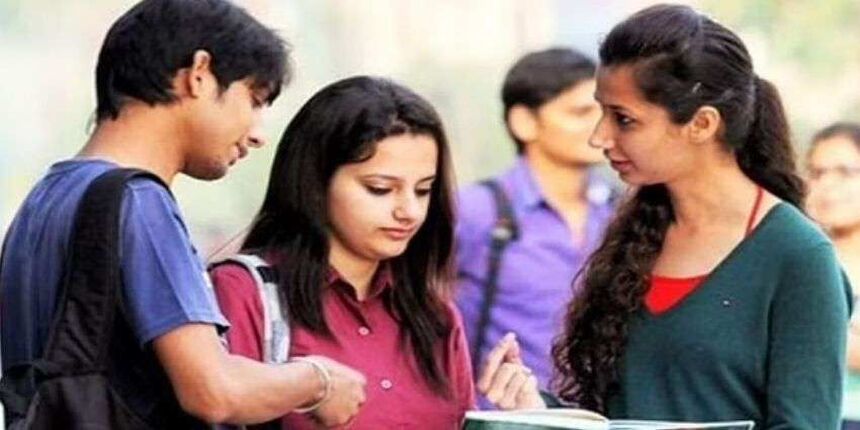Kerala University ran 9 departments without a single professor: CAG report
Kerala University: The CAG audit report also found violations of UGC norms, staff shortage, funds mismanagement, exam and result delays.
 University of Kerala (Picture source: Official website of Kerala University)
University of Kerala (Picture source: Official website of Kerala University)Sanjay | July 21, 2022 | 02:05 PM IST
NEW DELHI: University of Kerala (KU), Thiruvananthapuram’s department of nanoscience and nanotechnology ran without any sanctioned faculty posts and relying entirely on contract lecturers since its inception in 2016 till 2021, an audit by the Comptroller and Auditor General (CAG) of India found.
In fact, “nine academic departments were functioning without even one sanctioned professor post, seven without any sanctioned post of associate professor and assistant professors for two departments,” the audit report stated.
A performance audit of Kerala University covering the 2016-21 years by the CAG found numerous violations of UGC norms on structures of councils, teacher recruitment and pay, funding, and syllabus revision. Kerala University also failed to implement infrastructure projects on time.
CAG’s report on the “Functioning of the University of Kerala” has been prepared for submission to Kerala Governor Arif Mohammad Khan, also the Chancellor of the university. The audit involved scrutiny of the university’s records and physical verification.
Kerala University infrastructure
Five major infrastructure works worth Rs 9.70 crore initiated during 2011-17 remained incomplete. According to the CAG report, the university’s failure to utilise infrastructure funds resulted in it receiving only Rs 8.70 crore of the UGC allocation of Rs 15.76 crore as general development assistance (GDA) between 2012 and 2017.
The development of infrastructure was needed as the CAG found that large numbers of colleges lacked rooms, toilets, seminar halls, library books and accessibility features such as ramps and lifts. The two University Health Centres were either non-functional or poorly-resourced.
Kerala University: Inspection, syllabus
KU has over 180 affiliated colleges enrolling over 1.3 lakh students. It has 43 departments of teaching and research, 16 faculties and a School of Distance Education (SDE). In the latest National Institutional Ranking Framework’s (NIRF 2022), KU was placed at 40, dropping from 27 in 2021, in the “university” category.
The Kerala University College Development Council (CDC) – a UGC-mandaged body intended to oversee the integrated development of affiliated colleges – had just one member when it should have included the vice-chancellor, director of the council , principals of some affiliated colleges, senior teachers of university departments and a representative of the state government. The CAG audit found that KU’s CDC didn’t have a full-time director.
“The failure of the university to constitute a CDC with multiple members and non-conduct of meetings by the director resulted in lack of coordination and interaction between the university and affiliated colleges,” the report said.
Out of 34 University Institutes of Technology (UITs) with an approximate annual intake of 3,970 students, 17 UITs were due for accreditation, but none had started the process.
Also Read | Drop confusing ‘deemed university’ tag, amend UGC Act: Parliament Panel
By November 2020, out of the 90 boards of study (BoS), tasked with framing syllabus for undergraduate and postgraduate (UG, PG) courses, 52 lacked adequate representation of teachers or experts. Plus, the syllabus of 28 out of 142 courses had not been revised in three years which is the UGC’s recommendation.
Also Read | Tulsi-worship, rote-learning, Hanuman’s food habits in Karnataka’s NEP 2020 position papers
The university also failed to inspect affiliated colleges periodically, as required under Kerala University Act, 1974. “It was observed that the commission for inspection of affiliated colleges is yet to be constituted and the inspection had not yet commenced,” the report said.
Mismanagement of funds
Between 2015-21, KU received Rs 2,624.56 crore from UGC, Kerala Government and other sources but Rs 468.6 crore went unutilised. The underutilisation meant its receipts also reduced. “It is pertinent to note that the university is seeking more funds from the government for infrastructure development, whereas at the same time it is unable to utilise the fund made available by UGC,” the report stated.
Also Read | Five women held in Kerala for forcing girls to remove innerwear, NTA constitutes panel
Plus, KU invested in State Bank of India fixed deposits for which “the university was unable to provide any documents showing the approval of the government for investing funds in SBI and its subsidiaries”, the report said.
The university’s 10 Kerala University Colleges of Teacher Education (KUCTE) and one self-financing University College of Engineering in self-financing together lost over Rs 6.3 crore over 2016-20.
KU: contract teachers, delays
In October 2019, KU was denied the status of Institution of Eminence by UGC due to shortage of faculty. More than 23 percent of teaching staff were contractual, violating the UGC’s requirement that contract appointments be kept under 10 percent of the total. The percentage of such temporary staff also rose over 2016-21.
Also Read | Kerala: Women in chemical sciences face caste, gender bias, finds study
All 335 teaching faculty in 34 UITs, 10 KUCTEs, seven University Institutes of Management (UIM) and the University College of Engineering were appointed on contract basis. Out of 174 teachers in 34 UITs, 108 teachers were appointed without National Eligibility Test (NET) or a state-level equivalent or PhD, in violation of UGC norms. The contract teachers were also being underpaid, the CAG found.
Also Read | 5.6 lakh teacher vacancies in 15 states; 3 lakh in Bihar, Uttar Pradesh
The university has also seen many delays in the academic calendar – in conduct of the end-semester exams in 2016 and 2017 and in declaration of results of the UG programmes in affiliated colleges. In one case, exams were delayed by over 200 days (over six months) and in two cases, between 100 and 200 days, or three and six months. Results were delayed by over 300 days – over nine months – twice and between three and six months, four times.
Revaluation of answer scripts took over 120 days (four months) – twice the prescribed 60 days – in over 21,800 cases, suggesting this is a routine affair.
Follow us for the latest education news on colleges and universities, admission, courses, exams, research, education policies, study abroad and more..
To get in touch, write to us at news@careers360.com.




